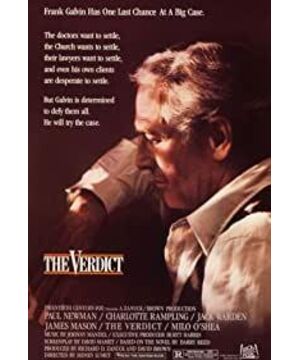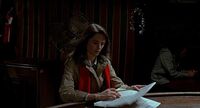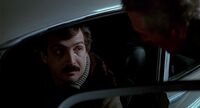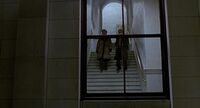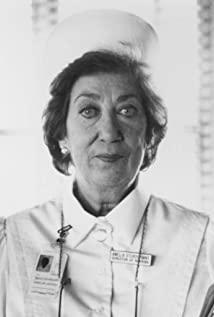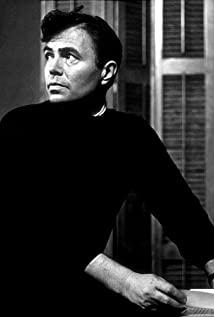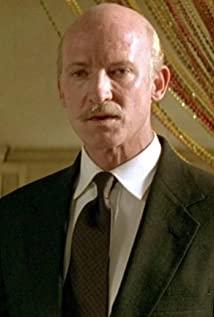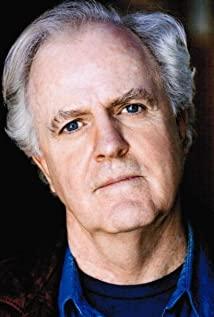The plot will not be introduced in detail in this article. Here we mainly analyze the negotiation skills of the protagonist in the film, the lawyer Frank, in this case, with an additional analysis of the negotiation strategies and methods of other characters.
Negotiation is defined as the process by which relevant parties consult each other on issues of common concern, exchange views, seek solutions and reach agreements. Negotiations are actually everywhere. If there is no issue of common concern between us, but at least I can turn the issue into the issue of concern to you and me during the negotiation or at the beginning of the negotiation, so that we have a basis for negotiation. The following article will analyze the ubiquitous negotiation process one by one according to the time sequence described in the film, and understand some negotiation skills and strategies from it.
Frank was in a state of poverty at the beginning, and had to go to various funerals all day to pick up the case, pretending to be a friend of the deceased, but was kicked out in the end. The lack of progress in the negotiations stems from the grief of the family of the deceased and the exposure of pretending to be tricks.
When Frank's friend Mickey obtained a medical dispute case for him, Frank was still sentimental in the mental breakdown of alcoholism. Mickey said bitterly to him, I have collected all the information and intelligence of this case for you, but you are like this, you will never change, never will, your life is short. These words were effective, and Frank determined to reform and reinvigorate himself. So he gave a new look to the messy office, and confidently told the victim's family that this is an easy case, it will definitely have good results, and the charges are very cheap. So the victim’s family was very satisfied and happy to let him represent the case.
When Frank went to the church hospital, the other party to the medical dispute, to make a private settlement, it should be said that the archbishop of the church hospital had all his information, the past failed agency history, and now the embarrassment of poverty. The archbishop did not want to go to court for fear of affecting the reputation and business of the hospital, but he knew that Frank did not want either, because Frank's previous failures were enough to make himself afraid of failing in court again. So the archbishop made a private suggestion, and offered a huge compensation of 210,000. Frank can get one-third of it. From then on, he has a worry-free life and a decent and rich life. But the parturient who became a vegetative due to improper anesthesia and her family cannot blame the hospital and doctors. This huge sum of money is only compensation, not compensation. This solution is a very big temptation for Frank. How does Frank deal with it?
Frank went to visit twice before and became a victim of a vegetative person because of improper anesthesia procedures during the production process. He felt extremely angry. He found a doctor in a church hospital, a doctor who "just awe-inspiring" promised to testify for him and testify for the victim. He decided to take the case to court, give justice to the victim, give himself dignity, teach responsible hospitals and doctors a lesson, and return the original truth of the medical dispute. Frank spring breeze was proud, and he also met a beautiful woman in the bar where he used to be a drunkard. It's really a double harvest in love career. It can be said that Frank has made sufficient preparations, and his psychological change has also suddenly elevated his image in the film.
However, due to unpredictable circumstances, mission hospitals have powerful defense lawyers. This defense lawyer has his own huge law firm with many lawyers working for it. Although Frank didn't fight alone, his helper was just a colleague who was about to retire and the lover he met. So the defense lawyer bought the key witness and could influence the judge's attitude. Frank lost this vital bargaining chip and was on the verge of losing the lawsuit. He has been complained by his colleagues that there is no reconciliation, and he was scolded by the victim's family, saying that he and the responsible doctor are the same, making his own way, and saying that he did his best after the accident.
Frank wanted to get the judge's postponement of the trial, but the judge was already completely inclined to the defendant, with his hot face pressed to his cold ass. Frank had to find a black doctor who was willing to testify and was very experienced in anesthesia. He also found the only nurse present who did not testify for the defendant, but the nurse did not agree to testify for him due to his stalking. At this time he had completely collapsed and told his lover that the case was over. Unexpectedly, the lover yelled at him, you will always be a child, and you want to give up before you even start. Do you want to be a loser? Then don't stand by my side. When he awakened the dreamer, Frank worked hard to study the case and conduct various litigation procedures in court. And through continued contact and inquiry with the nurse, it was discovered that the nurse did not testify to protect another nurse present. So Frank found the key nurse, the nurse who kept a copy of the medical records at the time.
The entire process of questioning in court can also be said to be a wonderful negotiation process. The defendant's defense lawyer can also be said to be very powerful. Faced with the testimony of a black doctor, the defense lawyer's question emphasized two points. First, a black doctor is a doctor who will testify for him who pays; second, a black doctor is an anesthesiologist with rich experience but no qualifications. The black doctor’s answer was also very skillful. He said that both the testimony this time and the previous testimony were charged for, but when something was wrong, I would come out to prove the wrongness of the matter. And he emphasized that he is an experienced doctor who has been engaged in anesthesia work for forty-six years. But when Frank asked the witnesses, the judge came out to directly question the witnesses. His tendency was very obvious. Frank condemned and threatened the judge tit-for-tat. At this time, such condemnation and threats are very important. Lawyers must also fight for their own rights in court. To fight for their own rights is to fight for the rights of the client.
When faced with the nurse’s testimony, it was a temporary attack for the defendant. However, the defense lawyer responded quickly. The question emphasized that the copy of the medical record provided by the nurse had no evidence and the legal provisions were turned out. The nurse's testimony was the result of Frank's unremitting efforts and his last bargaining chip, but it was denied by the law. The copy has no evidence, but the original has been tampered with, and it was tampered with by the nurse forced by the responsible doctor. This is really to the point where everything is exhausted. Fortunately, there is the final step of summarizing the statement.
So Frank’s sincere statement began. He said with a very deep heart to the jury, we doubt the faith, we doubt the system, we doubt the law, but today you are the law; not books, not statues, you are the law; we What the prayers of is asking for is justice, and I believe we have justice in our hearts. Although this statement sounds a bit false to the author, it is one of the key factors that determine the victory or defeat of the case in the film. The conclusion reached is that the final summary is the key to the negotiation, and we must be prepared, and we must be empathetic.
View more about The Verdict reviews


